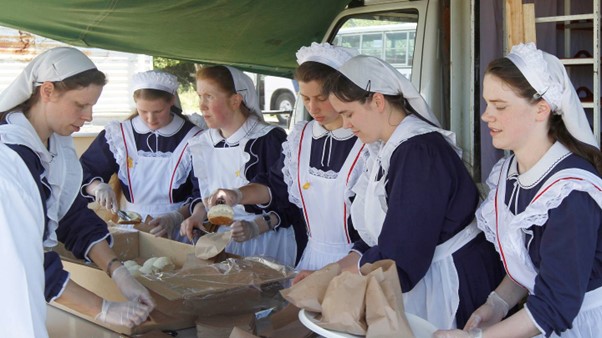In an eagerly awaited decision from the Employment Court, Chief Judge Christina Inglis has ruled that three former members of the Gloriavale Christian Community were indeed “employees” that were compelled to work long hours (as many as 70 hours per week), under a strict regime and from as young as six years of age.
Gloriavale attempted to argue that such work was chores and that their ‘roadmap for life’ document (known as “What We Believe”) is not akin to an employment agreement, instead it is a summary of their values and beliefs. It claimed that an employer/employee relationship is “fundamentally at odds with [their] Christian principles and beliefs” and their members voluntarily perform work as a means of contributing to the Community.
Yet, the former members of Gloriavale successfully argued that an employment relationship did exist by way of conduct. The extent of the control that was excised over these members played a key factor in the decision. The Community leaders (known as the Overseeing Shepherd and Shepherds) not only controlled where and when they worked, they also controlled where they resided, the food that they ate and ultimately decided who they could marry. Every aspect of their life was controlled. Instances of disobedience or poor performance were dealt with by physical and psychological punishment which included withholding food and public humiliation. It was described as a “brutal control regime.”
Aside from the unreasonable extent of control, the former members had limited opportunities for rest or play; they were only allowed six days of holiday a year (which could be reduced depending on work pressures); sick leave or time-off for incapacity was frowned upon; they worked long hours often performing dangerous work operating machinery without PPE; and any renumeration earned was paid back into the Community’s own trust bank account. The former members had no control over the money earned.
Former members were required to record the hours worked on timesheets but under strict instruction not to record more than 8 hours (even though they undoubtedly worked as many as 12+ hours a day) and were paid the hourly minimum wage but only based on the hours recorded. Seemingly these activities open the door for other causes of action. Specifically, the ready access to child labour, slave-like working conditions, breaches of health and safety, and general workplace abuse. These activities are outside the scope of the Employment Court but certainly pave the way for WorkSafe and/or Police intervention.
This decision is interesting for many reasons. Not only does it give us a greater insight into work practices within a religious community, but it also reinforces the fact that no organisation is beyond the reach of law. The Courts are able to look behind any contractual arrangement to assess the ‘real nature of the relationship’ between the parties irrespective of their community framework. When deciding whether or not an employment relationship exists, a contractual arrangement is not the defining factor – the Courts look at all of the facts of the situation and specifically how the parties conduct themselves. So, regardless of whether a contract is in place, an employer needs to be wary of the way it operates in practice with workers. Conduct can determine the employment status even if the intention of the parties suggests otherwise.
Emma Monsellier – Director Monsellier Law
Employment Law

